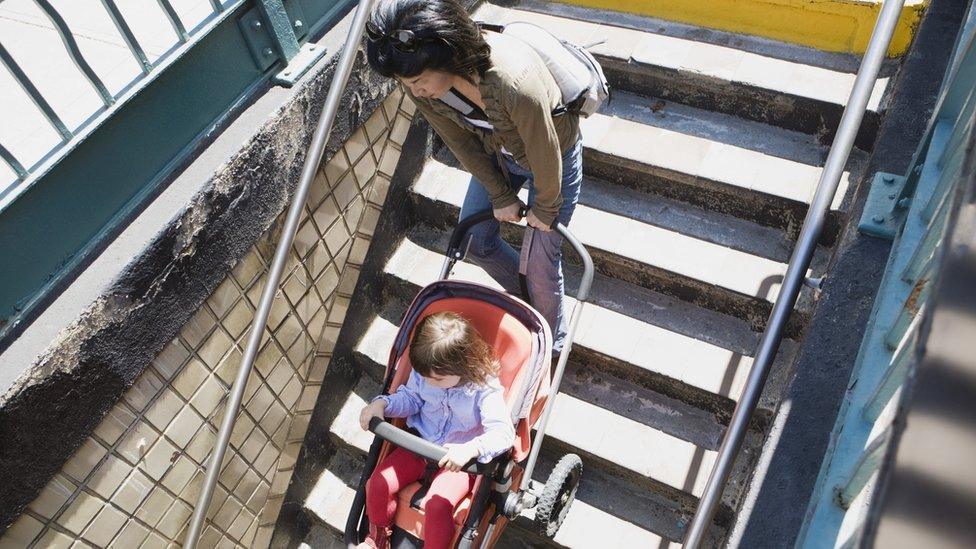£2bn rail upgrade proposal put forward for Midlands
- Published
- comments
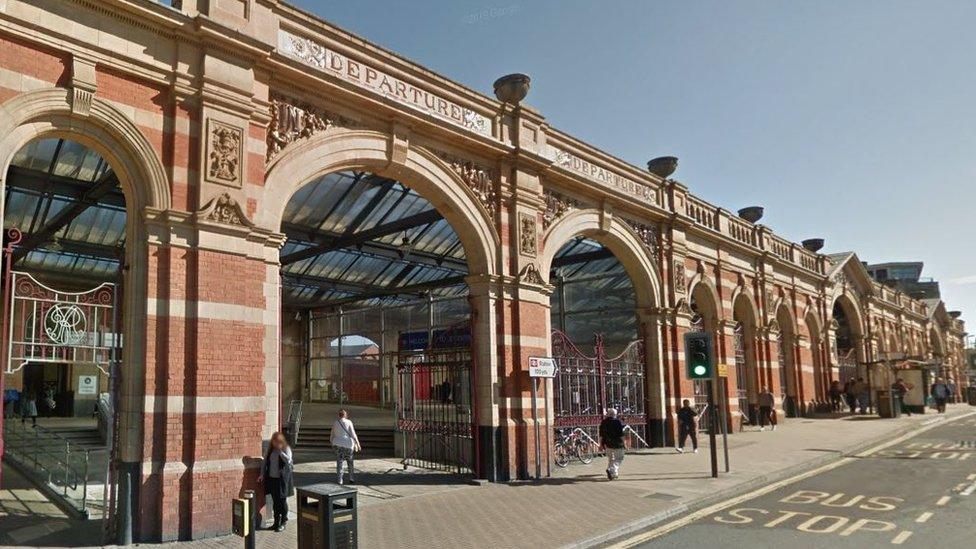
A campaign group said it has called for better connections between Leicester and Coventry
A proposal for £2bn of improvements to the rail network between the East and West Midlands has been submitted to the government.
Midlands Connect said the plans would mean direct services between Coventry, Leicester and Nottingham for the first time since 2004.
It said it would reduce the time it took to travel across the Midlands.
A campaign group said it had long called for the return of the Coventry to Leicester connection.
The plans, which if they went ahead would be completed in phases between 2024 and 2033, have been submitted by Midlands Connect, the body behind long-term transport plans for the region, in partnership with Network Rail and with the backing of 47 partner organisations.
Midlands Connect said although rail use in the East Midlands had risen by 37% over the past decade, rail capacity had been unable to keep pace, meaning slow, infrequent and unreliable services between the East and West Midlands.
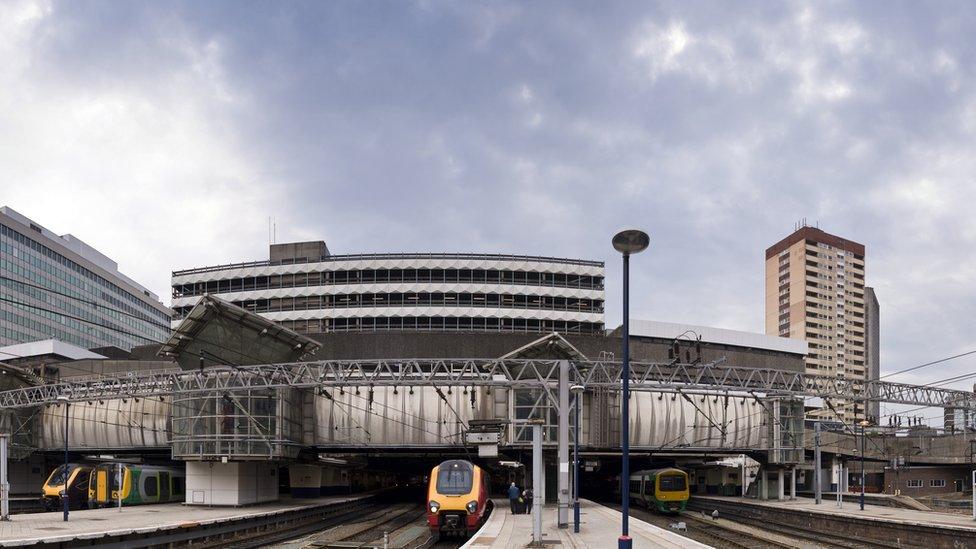
The plans will also include extra trains to and from Derby, Leicester, Nottingham and Birmingham
It said the upgrades would create space for an extra 24 passenger trains an hour, 85,000 further seats a day in and out of Birmingham and an estimated six million more journeys each year, in addition to generating an estimated economic benefit of £649m a year by 2037.
As well as the direct services, there are plans for two extra trains per hour to and from Derby and Leicester to Birmingham and one extra train per hour to and from Nottingham and Birmingham.
The plans include £15m to £25m to be spent on freight loops and track improvements in Leicester, £150m to £200m on improving the Leicester Corridor to Birmingham and £15m to £25m on enhancements around Nottingham.
There would also be the reinstatement of a line under the West Coast Main Line at Nuneaton, or construction of a flyover, to allow for the direct services, the cost of which is estimated at £110m to £250m.

On the platform - Nicola Goodwin, BBC Hereford and Worcester
Passengers travelling from Birmingham New Street to Hereford on Tuesday shared their views about the proposal.
One pregnant passenger, who makes the journey every day, said: "It would make my life easier and give me more flexibility as travelling at 07:09 is not always the most convenient when you're feeling not that great.
"An extra train would be fantastic. [Otherwise] I have to drive into Birmingham and from a congestion point of view it's not a brilliant solution."
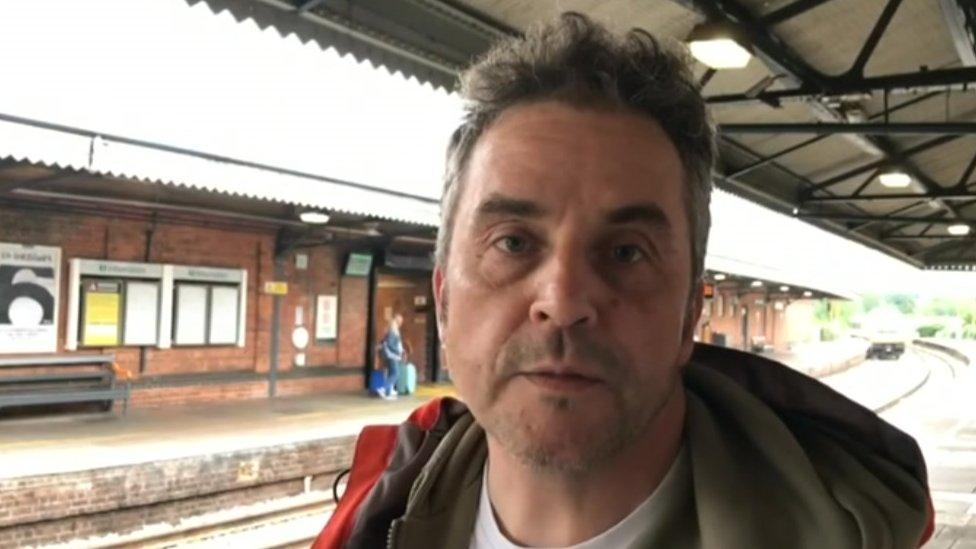
Commuter Marcus Burn travels five days a week by train
Commuter Marcus Burn, who often travels on the train with his bike, said: "I commute five days a week to Worcester and Kidderminster and have been doing that for about four years now.
"On the morning one, it's full. Recently they've only been putting on about three carriages in the morning so that's not ideal.
"Coming the other way it's a struggle sometimes to get on. It would ease the congestion if they were going to put (more trains) on at peak times and evenings would be really good."

Sir John Peace, chairman of Midlands Connect, said: "The Midlands Rail Hub is a cost-effective, evidence-led plan to upgrade our Victorian infrastructure to meet the demands of the future.
"These proposals capture the enormous economic potential of the Midlands, with 320,000 new jobs estimated by 2030, mainly in professional services firms who depend on good rail connectivity to attract skilled workers."
After submitting the plan to the Department of Transport, Midlands Connect is now asking for £25m to create an outline business case, which would detail the specifics of developing the scheme.
Colin Major, secretary of Rail Future, a volunteer-led organisation which campaigns for better rail services, said: "In concept, I think it is good news, of course we want more people to use rail - it is greener, more environmentally friendly.
"We have been pressing for the Coventry-Leicester connection to be reinstated because, we believe, it would be a good opportunity and there is demand for the service."

Follow BBC West Midlands on Facebook, external, on Twitter, external, and sign up for local news updates direct to your phone, external.
- Published19 May 2019
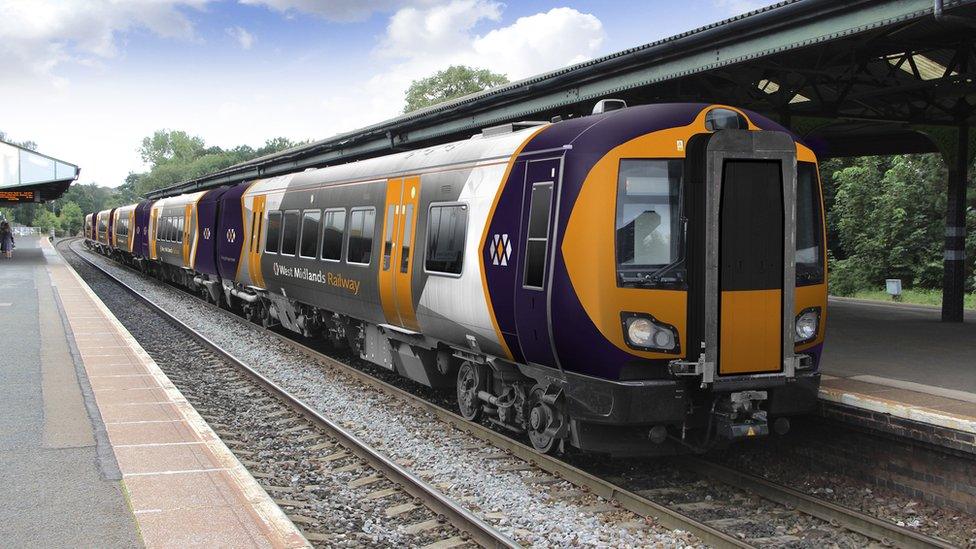
- Published10 April 2019
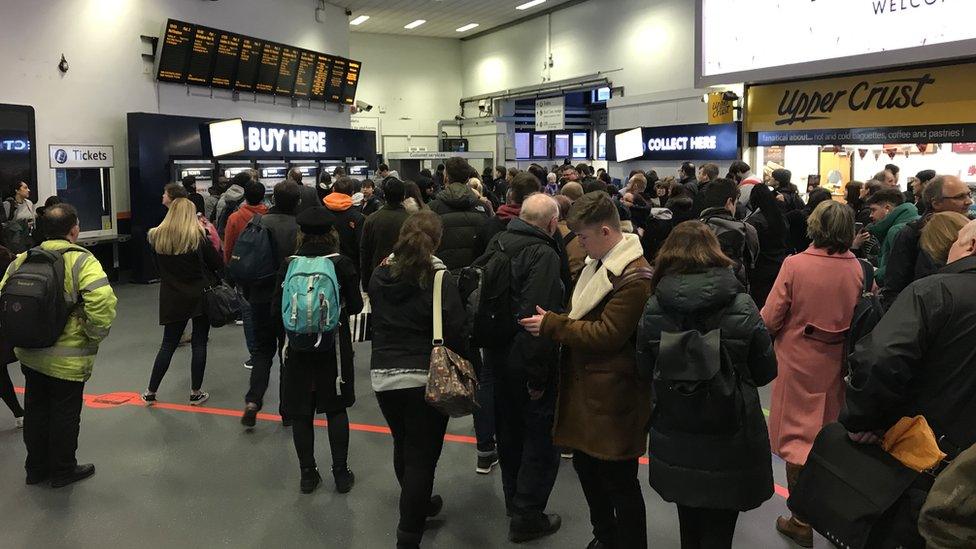
- Published4 April 2019
